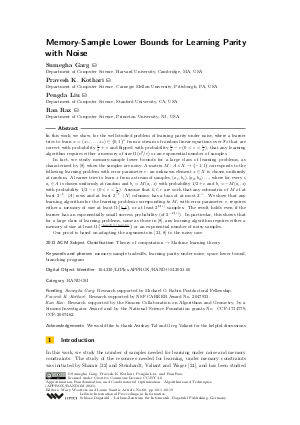LIPIcs.APPROX-RANDOM.2021.60.pdf
- Filesize: 0.75 MB
- 19 pages

 Creative Commons Attribution 4.0 International license
Creative Commons Attribution 4.0 International license





















Feedback for Dagstuhl Publishing